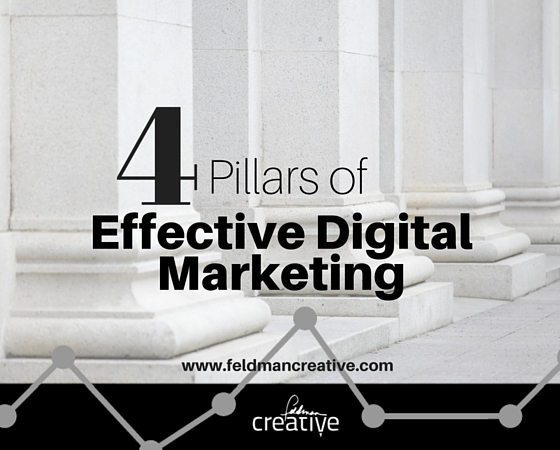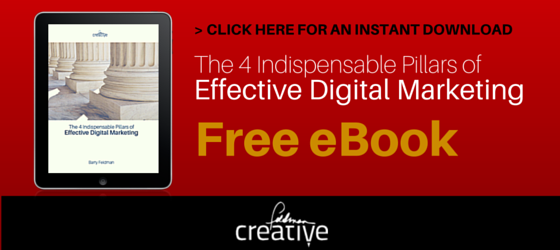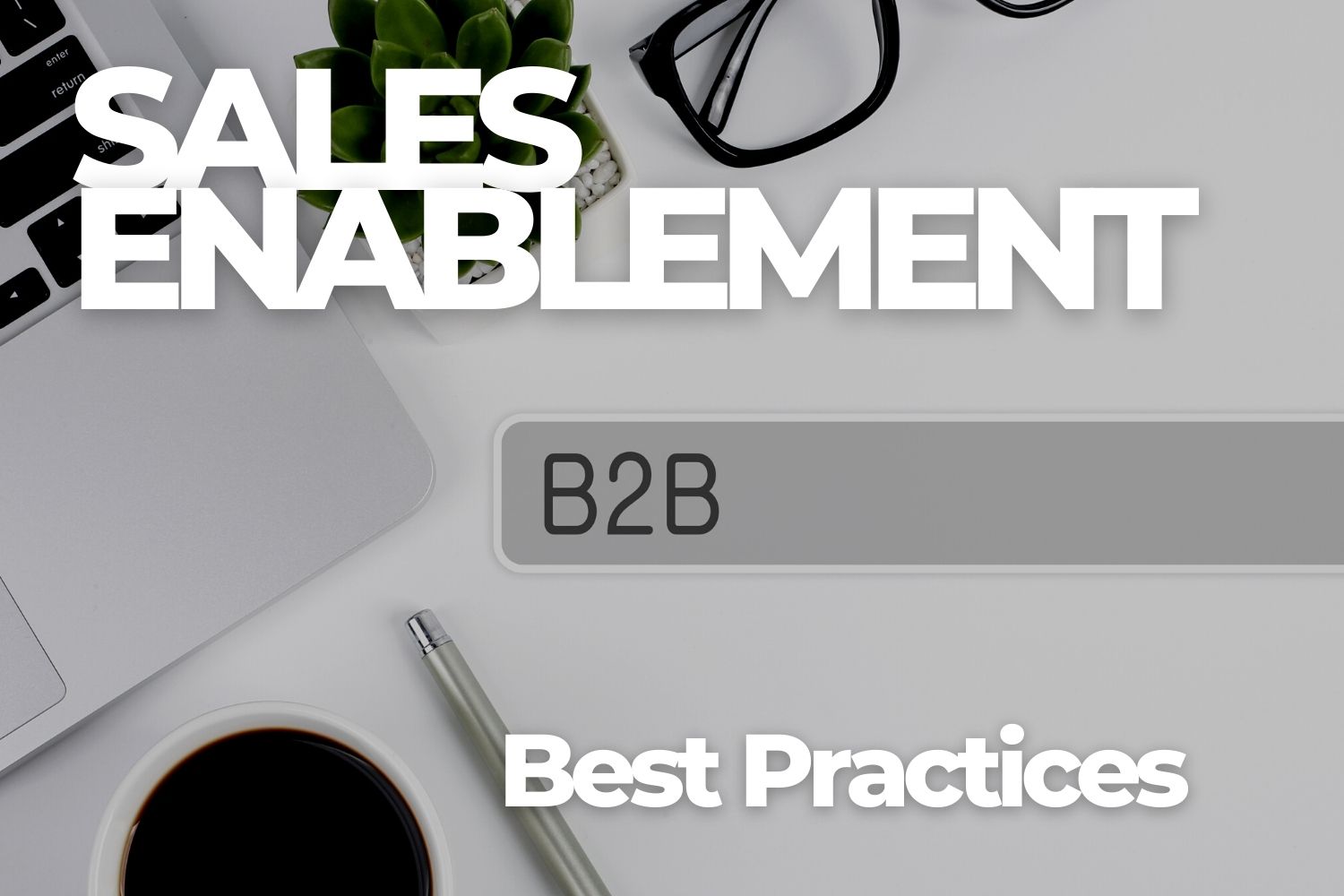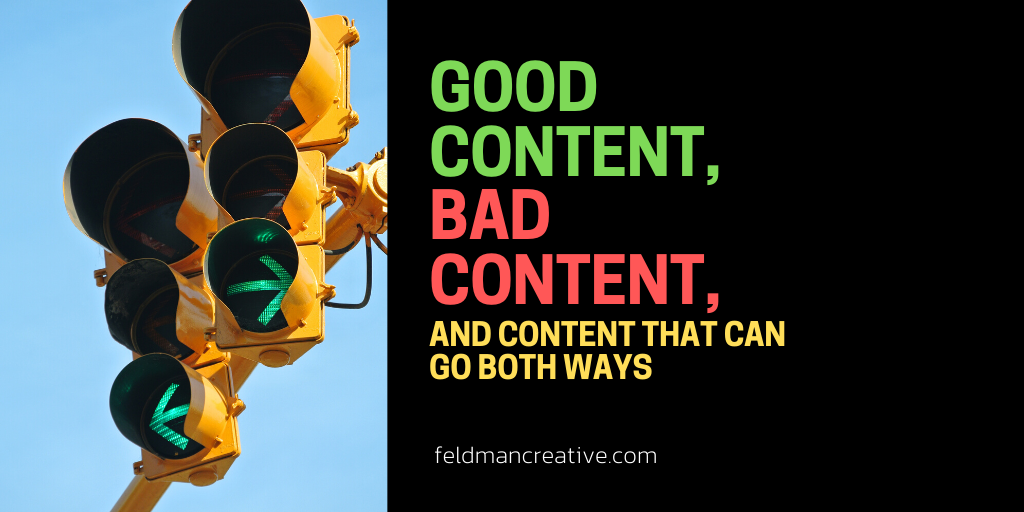We’re going to talk about post website depression (PWD).
If you’re a sufferer, I urge you not to be embarrassed. You’re hardly alone.
Generally, PWD is preceded with wild mood swings. For months you’re knee-deep in the grind. Meetings and conference calls. Site maps and wireframes. Copy and code. Layouts and links. Flurries of emails. Portals. Staging sites. Browser testing. Blood, sweat and title tags.
Then finally…
After an exhausting Friday of tedious troubleshooting you’ve blasted past every last imperfection (you think). The flip gets switched over the weekend and you’re live. The new site looks tight. It loads in a flash. Isn’t the web wonderful?
High fives are flying all around the office Monday morning. The boss even sprung for donuts. But in the coming days, the buzz wanes. A week or two later, the source of your depression becomes clear: a million perfectly composed pixels can amount to zero effect on the business.
HEADS UP…
This is a 4,000-word post. If you’d rather “Pocket” it or download it to read at another time, click here or the image on the left to get a free eBook version.
It’s time to call a content marketer
That’s me. And this is a call I’m a part of a lot.
I’m happy to have this call because I can answer most of the questions and steer the ship forward from here. But I must admit, this call tends to include two waffles I could live without.
Waffle 1: Uncertainty
I told you the impetus behind this consultation: PWD. The company’s learned a new website in and of itself is no rainmaker. Now, at least to some extent, the marketer/owner/person I’m talking to realizes her or his company needs more than a shinier home on the web; they need a more significant digital footprint.
They need to publish content—onsite and off (but first, on) so they get discovered more. Known more. Liked more. Trusted more. This is how digital marketing works.
But then, ugh, the question, the inevitable question, dare I say, the “you’ve got to be kidding me” question…
“Barry, in our business we’re not so sure potential new clients go online to blah, blah, blah, blah, blah (read, research, make decisions, buy, etc.).
Here’s what I think at that moment: Are you serious? Where do you think they go? Where do they get their books? Where do they do research for their personal needs? Where did you find me? And WHY are we talking?
Here’s what I say at that moment: Yes, they do. (And the client knows it.)
And one more thing: In digital marketing it’s dangerous to forge a strategy based on what you think or your opinion. You need to know how your prospects and customers behave.
Waffle 2: Commitment
Somehow we get past the ridiculousness. It’s understood: content must be produced. We proceed to the double-headed time and money monster. This part of the conversation could go a number of ways and at this point it’s a bit premature to do a content marketing plan, but to do my part I say what needs to be said:
Yes, it’s going to take time and money. And if you’re not committed to it long term, you’ll be wasting both.
So what’s it to take to make digital marketing work?
The most successful businesses are becoming customer-centric marketing machines. They’re able to:
- Define marketing strategy based on customer needs
- Understand the customers’ behaviors
- Engage with customers based on their behaviors
Research indicates buyers are commonly two-thirds (or more) of the way through their journey before they reach out to the vendor. Marketing’s role has become enormously different.
- Marketing is sales. Marketing—not sales—guides buyers through the early stages of the buying process.
- Touch points multiply. Marketers need to engage customers across an expanding array of channels.
- Timeliness is crucial. Relevant marketing messages and content must be delivered fast and at every stage of the buyer’s journey.
Good news: your company can shift into digital gear to become more in touch with your customers’ needs, more responsive in delivering the content they seek when it matters most, and more effective and efficient.
Though there are countless strategies that may come into play there are four pillars of effective digital marketing your company needs to master:
1. Content marketing
2. Search engine optimization
3. Social media marketing
4. Marketing analytics
None of the above is optional. Think of them as four legs of a stool or table that forms the foundation of your digital marketing. Try to get by without one and your foundation falls down.
I’m now going to dive into each of the four to help you begin to get a basic understanding of the pillars of effective digital marketing.

Content marketing
Cash-in on the power of pull
All day, every day, from wherever they happen to be, billions of people go online and summon the information they need to make decisions. Their requests are instantly fulfilled. The question that now begs to be asked is, whose information will be served and consumed?
The information, which takes many forms, has been dubbed “content.” The practice of providing the content, when done by companies aiming to pull prospects toward their brand is content marketing.
Defining content marketing
Content marketing is the marketing and business process for creating and distributing relevant and valuable content to attract, acquire, and engage a clearly defined and understood target audience – with the objective of driving profitable customer action. (Source: Content Marketing Institute)
A variety of definitions of content marketing have surfaced. The common thread is the content has value, mostly of the educational variety. It’s not advertising, which generally interrupts people as they attempt to consume media.
Content is the media the prospect wants to consume. As a content marketer, you don’t preach; you teach. You create content that engages prospects, earns their trust, and ultimately, wins their business. Let’s examine how it’s done.
The publishing paradigm
Effective content marketers are essentially publishers. They think of themselves this way and adopt the same practices that have served successful publishers well through the ages.
You can extract many lessons from this concept, the most important of them include:
Define a mission. Like publishers, content marketers must document whom they publish for and what purpose the content serves.
Establish an editorial calendar. Content marketers must, in advance, schedule content. The schedule should be populated with specifics including, topics, authors, audience personas, channels, and publication dates.
Maintain consistency. Content marketing is not a campaign. There is no end date. The program fails if and when the publication stalls or stops. It’s imperative to perpetually develop and publish new content.
Collaborate to create. A common death trap in content marketing is the reliance on a single person or limited resources, usually from within a marketing department. The most successful content marketers gain universal (and top-down) buy-in from everyone in the company and rely on a rich variety of sources for content creation.
The cornerstone of your content marketing
As a content marketer you can, and should, create a variety of content types. When searching for a place to start, the answer is often a blog or another type of content hub that features useful content catered to the interests of your audience.
Your company blog or content hub is a media you own—and you own everything about it: the space, voice, and point of view.
Use a content management system (CMS) hosted on your domain. This approach enables you to quickly and easily update your content when you choose—without depending on support from IT or a web developer.
Additional content types to consider as you expand your program include:
- eNewsletters
- eBooks and white papers
- Research reports
- Case studies
- Webinars
- Video
- Infographics
- Slides
- Digital magazines
- Learning series
- Podcasts
- Apps
How might you prioritize your list? The answer should come from your market. In addition to understanding the needs and wants of your target market, you should conduct thorough research to draw conclusions about your prospects’ and customers’ media preferences.
Success on your content marketing journey
Content marketing is forever dynamic. Every company will have different objectives, challenges, and approaches. No perfect formula exists.
However, as varied as content marketing programs may be, a commonality exists for every effective one. Focus on the final word: marketing.
Content marketing programs should grow your business. So before we move on to the all-important topic of search engine optimization, here are some ideas to behold along your content marketing journey.
Inspire conversation. Your company blog (and your content otherwise) should not only attract readers, but also engage them.
Qualify and disqualify. Though the content your audience will be most receptive to won’t be explicitly promotional, consider how it frames your business. It should be relevant and attractive to the right audience and help others disqualify themselves when ill fitted for your products and services.
Nurture. Content should take prospects and customers on a journey.
- Content aimed at first-timers should move them to a more engaged stage of interest.
- Interested prospects should be nurtured to evaluate your solutions.
- Evaluators should be led to the checkout counter, so to speak.
- The goal is to use content to create more sales-ready leads.
Call for action. Smart marketing invokes action. Give your prospects specific directions. Every page or piece you publish should have an “ask.”
Build advocates. Content marketing should extend beyond the sale. By continuously distributing useful content, you foster loyalty and strive to create a legion of brand advocates.
 SEO
SEO
The buyer’s journey begins with search
An overwhelming majority of buyers begin their journey by conducting an online search.
Buyers want tips, product information, comparisons, reviews, prices, etc. They seek—and will find—answers. Will the answers come from your company or your competitors?
You need to appear on search engine results pages (SERPs), preferably on the first page, where upwards of 80% of the clicks come from.
How do you earn high rankings? At the most fundamental level, you need to understand and utilize search engine optimization (SEO) techniques. The page you want presented to a buyer performing a search via Google—or any search engine—has to be deemed relevant to the word or phrase the user types (or says). These words and phrases are called “keywords.”
From here on out, very little is simple or cut and dried. Sophisticated mathematical algorithms determine search results. They’re not only complex; they’re well guarded secrets. Also, the algorithms are perpetually re-examined and changed by those that create the search engines.
SEO never rests. The best you can do to succeed with your SEO efforts is to understand how search engines operate based on the insights of experts who practice the craft daily and apply the knowledge as you create and distribute your content.
Following are some truths about SEO today.
Effective SEO focuses on the factors that matter most
You’ll get nowhere without making smart decisions regarding keywords. However, when Moz (a recognized leader in the field of SEO) last surveyed search experts in effort to compile a master list of ranking factors they compiled a list of 200 factors in 9 categories.
Following are the top four—with simple explanations—which amount to 65% of the equation.
- Domain level authority—The authority of a website determined by the number and quality of links to it.
- Page level authority— The authority of an individual web page determined by the number and quality of links to it.
- Page content—The keywords on the page (and where they are placed).
- Page features—Page elements outside of keywords, most notably, links, length and load time.
Other search engine ranking factors include:
- User experience
- Domain level brand features
- Usage and traffic
- Keywords on the page
- Anchor text
- Website features
Search engine practitioners sometimes torture themselves (and their clients) trying to make sense of it all. Ultimately, the most sensible approach is to abide by the advice offered from Google, which is to provide valuable content and format it correctly.
Links = authority. Despite the proliferation of search ranking factors (many of which come from speculation), the most important is still links. Quality links determine the authority of your pages. Note my use of the word “quality.” Links from insignificant sites are, well, insignificant. You earn quality links by publishing quality content.
How to optimize web pages correctly
Understand this: search engines rank pages. One by one. To get your page ranked, you must optimize it per the standards of the search engine. You do so with “tags,” whose purpose is to signal relevance to the search engine.
Tagging a page correctly will call for the smart use of keywords. They should be used in specific places, however, it’s vital to understand using keywords in excess (keyword stuffing) results in search ranking penalties. Your keywords should be used as naturally as possible.
Here’s where your keywords should be placed:
- Title—The title is what you hope will appear on the SERP. The limited space there suggests a maximum character count around 60.
- Headers—Pages can include headlines (tagged as h1) that can differ from the title, but should also feature your keywords. Subheads (tagged as h2) may also include keywords or close variants.
Body copy—Your page should include keywords and variations of them naturally, but as often as possible. - Meta description—SEO plugins remind you to craft short snippets to describe your page. Snippets are often displayed in search results. Meta descriptions do not affect rank, but do affect click through rates.
URL—The page’s URL should contain keywords. Make the URL concise by disposing of unnecessary words. - Image name(s)—File names of your images should include keywords so they appear under relevant “image” search.
SEO reality checks
Before advancing to the next chapter covering social media marketing, we’ll highlight four important SEO principles.
SEO is a long-term strategy. With a stellar keyword strategy, a great page and perfect execution, it’s possible to enjoy fast results in search, but it’s rare.
Earning links from other reputable websites requires time and persistence, so SEO should be thought of as a long-term marketing strategy.
SEO is highly competitive. However special your company may be and specific to the niche you’ve targeted, it’s unlikely your strategy is 100% unique. Your competition also recognizes the importance search plays in online marketing. For this reason, targeting long tail keywords accelerates your success with search. Long tail keywords tend to include three or more words. The idea is to be a big fish in a small pond.
Translated to search, this means research is conducted to arrive at longer phrases with less competition. While your search strategy may also include one or two word phrases that describe your area of specialization, individual pages (such as blog posts) are optimized to rank high for highly specific keywords.
Recency matters. Surprisingly, “recency” did not appear as an important factor in the latest Moz study. However, the search engines are smart enough to crawl (or index) your website only as often as it’s updated. Given this reality, it’s crucial to publish new content on your website as often as you can create something of value. To a large extent, this explains the explosive growth of business blogging.
Not all traffic matters. A website that earns massive traffic isn’t necessarily tied to a company that earns great profits. To earn its keep, companies paid to help you optimize your ROI in online marketing must evaluate the value of ranking and traffic relative to leads and sales.
The process is complex, but not impossible. When your team and marketing partners are able to generate traffic that also generates sales, you realize the true benefits of SEO.
Social media marketing
Do buyers relate to your brand?
Social media is about building relationships. You need to get into it. And you get out of it what you put into it.
But you can’t treat social media strictly as a new set of channels for generating leads. It’s not. Conversation is a vital part of marketing now. Customers convene on social media to rave about brands, rail about them, and all points between.
Here are a number of ideas to help you get more from your social media endeavors.
Which networks are worth your time?
Should you focus first on Facebook because of its popularity? Does doing business in a B2B field suggest LinkedIn is your top priority? Is the explosive growth of Pinterest a good reason to start there?
Obviously, when selecting social networks to commit resources to, you have to make smart choices. Newcomers to social media are wise to get involved in just one or two to begin with so as to not be overwhelmed. So naturally, marketers often want to know which networks to choose.
A simple answer. Choose the networks your customers use. Look at your competition’s social activity. Research the demographics of the top contenders. Visit your clients’ websites to see which icons they display and get a sense for where the conversations are taking place. And try this: ask them.
Listen and learn. There has never been a better market research tool than social media. The key to taking advantage of the learning potential social media offers is to “listen,” which really means “read.”
As a “fly on the wall,” you can gather what’s on the minds of your audience. What topics resonate the most? What are the trends and changes you see? Who wields influence in your field?
Above all, listen for the questions people are asking. In addition to doing this via the top social media networks:
- Plug into Q&A sites such as Quora
- Join relevant LinkedIn Groups (where most discussion threads are prompted by questions)
- Monitor the conversations around topics with keyword searches and hashtags
- Use tools such as Buzzsumo and Topsy to gauge interest as indicated by social sharing numbers
- Setup Google Alerts to email you notifications when your brand and specific terms appear in the headlines of blog posts
Listening to conversations on social media will help you gather invaluable insights, which should, in turn, inform the content you publish and share, help build relationships, and ultimately bring potential customers to your website and social media pages.
Getting known, liked and trusted
For eons, marketers have espoused the notion that the successful growth of your brand comes from getting known, liked and trusted. Social media brings new meaning to it.
Thanks in large part to Facebook, “like” quickly became a commodity. And a “like” isn’t all that meaningful. Trust is. Of course, trust is also harder to earn. Following are tips for earning trust with your social media activity.
- Ditch the pitch—Resist the urge to pitch your products. If the majority of your social updates are promotional, you’ll be rejected by the members.
- Make yourself useful—You want to adapt a content marketing mindset on social media. Invite people to see your blog posts and educational media. Answer questions when you can.
- Be generous—To help gain trust and credibility, commit to sharing content from others, often. Social media is highly reciprocal, so the more you refer readers to useful content (or curate), the more likely they’ll return the favor.
- Respond thoughtfully—Social media users are apt to be forthright, honest, even negative. When you discover negative responses about something you’ve written or an experience someone had with your brand, avoid coming back with an abrasive response. Be thankful for the input. Own the problem and respond in a positive way.
- Be yourself—Social media is a waste of time if you hide behind a logo and blather corporate speak relentlessly. While you should maintain professionalism, you’ll be liked more when you’re fun to interact with and earn greater trust by being honest and human.
- Be consistent—You’ll be taken far more seriously if you’re active on a daily basis. Yes, you can take breaks without threatening your good standing, but if you merely check in with a post now and then, you probably won’t be taken seriously.
- Interact with influencers—Identify leaders in your field and strive to build relationships with them. Share their work. Include them in your content. Forging meaningful relationships with influencers will expand your reach and accelerate your efforts to win the trust of the community.
- Develop a sharing mindset—Understand no marketing wields the power and trust of word of mouth. Recommendations from influencers, partners, customers or any type of advocate are gold, so make it “one-click” easy to share your content and thank people for doing so.
Buying attention
Yes, like traditional media, social media space and time can be bought. Some networks focus on building a large membership before they offer paid media options, but inevitably evolve to pay the bills with advertising revenues.
Social media advertising
Advertising on social media is not only acceptable, it can have a meaningful effect on your marketing efforts. The interactive element of social media enables the network to gather deep insights into its audience’s interests, behavioral patterns and of course, demographics. Therefore, your ads (promoted posts, sponsored content, and other variations) can be highly targeted, which ultimately can improve your return on investment.
Additionally, paid media such as the programs offered by social media networks, is often sold on a pay-per-click basis, thereby reducing the waste that was unavoidable in non-digital media.
Marketing analytics
Assess and refine your efforts
A shocking percentage of modern marketers pay little or no attention to measuring performance. When you understand the potential to measure digital marketing—and understand the deep insights analytics provide (with both free tools and marketing automation platforms)—you realize failing to analyze results is sinful.
Analytics processes are sure to differ from company to company, but will often include the following:
Establishing goals—Business goals are documented. Outcomes are aligned with the goals and quantified.
Establishing key performance indicators (KPIs)—What will be measured? Google Analytics can be used to analyze an enormous array of metrics. Marketing automation platforms allow you to incorporate lead generation metrics such as:
- Number of marketing qualified leads (MQL)
- Cost per MQL
- Cost per sales accepted opportunity
- ROI by program (including first touch and multi-touch data)
Quantifying investment—Tools provided within marketing automation platforms enable you to plan investments, track marketing spend, and gather performance data aligned with costs to assess ROI.
Tracking—Marketing automation removes much of the complexity from determining how marketing
programs or elements of them influenced purchase decisions.
Assessing attribution—A powerful extension of tracking dials into gauging how a specific channel (e.g. website, PPC, email, webinar) performed in the sales cycle.
Measuring marketing’s contribution to revenue—The key to funding digital marketing programs is to prove their worth. Your marketing automation platform will give you tools to determine how much pipeline marketing programs create and more valuable insights to measure marketing’s contribution to revenue.
Now back to the bottom line
You do analytics to improve marketing ROI. Working closely with a digital marketing expert, you’ll create measurement systems capable of guiding you toward improved profitability.
Marketing analytics will enable your company to evolve its mix of tactics based on actual performance. Each measurement will inform the refinements you’ll make to your marketing programs to help achieve business goals.
Would you like a copy of this post as an eBook?
CLICK HERE or the image above for a FREE copy of the eBook.
I’ve chosen not to “gate” the new eBook (that is, force you to fill out a form). However, if you’re not on the Feldman Creative email list, now’s the time. Enter your email address below.













Comments
Max
Recommendations are Gold! – the keywords of this text.